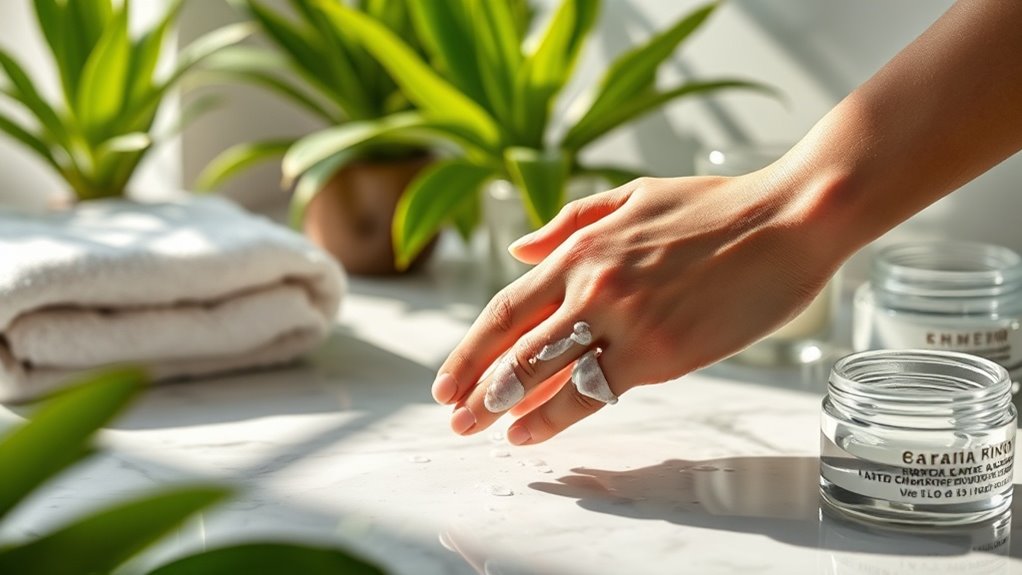Exfoliation Secrets That Dermatologists Wish You Knew
Understanding Exfoliation: What It Is and Why It Matters
Exfoliation is crucial for maintaining healthy skin, as it involves the removal of dead skin cells from the surface.
By understanding exfoliation secrets, you can enhance skin texture and promote cell renewal.
Regular exfoliation not only prevents clogged pores but also increases the effectiveness of your skincare products.
Ultimately, it’s a vital step in achieving a radiant and youthful complexion. Recognizing over-exfoliation helps protect the skin barrier from damage.
Different Types of Exfoliants: Chemical vs. Physical
When choosing an exfoliant, understanding the differences between chemical and physical options is essential for tailoring your skincare routine. Chemical exfoliants utilize acids or enzymes to dissolve dead skin cells, while physical exfoliants rely on granules or tools to slough them away. Here’s a quick comparison:
| Type | Benefits |
|---|---|
| Chemical Exfoliants | Smoother texture, even tone |
| Physical Exfoliants | Immediate results, customized feel |
Exfoliating more than twice a week can disrupt skin’s microbiome, leading to irritation and sensitivity.
The Right Frequency: How Often Should You Exfoliate?
How often should you exfoliate for optimal skin health?
Generally, for most skin types, exfoliating 1–3 times a week is ideal. If you have sensitive skin, stick to once a week to prevent irritation.
For oily or thick skin, you might benefit from 2–3 times weekly. Always listen to your skin’s needs and adjust frequency accordingly to maintain a balanced complexion. Additionally, over-exfoliation can lead to irritation and compromise the skin barrier, so it’s crucial to find the right balance.
Common Misconceptions About Exfoliation
Many individuals mistakenly believe that more exfoliation equates to better skin. In reality, over-exfoliating can damage your skin barrier and lead to irritation. Here’s a quick comparison to clarify:
| Misconception | Fact |
|---|---|
| More is better | Less often is more effective |
| Exfoliation cures acne | It can sometimes worsen breakouts |
| Scrubbing equals exfoliation | Gentle methods are essential |
Additionally, it’s important to recognize that chemical exfoliators can effectively slough off dead skin cells without the harshness of physical scrubs.
Exfoliation Techniques for Different Skin Types
Understanding the importance of tailoring your exfoliation techniques to your specific skin type can significantly enhance your skincare routine.
For oily skin, use chemical exfoliants like salicylic acid; they penetrate pores.
For dry skin, opt for gentle physical exfoliants or mild alpha hydroxy acids.
Sensitive skin benefits from enzymatic exfoliation.
Always patch-test new products to avoid irritation and ensure compatibility with your skin type. Additionally, understanding the cycle of oil production can help you determine the right frequency of exfoliation for oily skin to avoid over-exfoliation.
Recommended Exfoliating Products by Dermatologists
Dermatologists often recommend specific exfoliating products tailored to various skin types, ensuring effective and safe results.
For oily skin, salicylic acid cleansers work well, while glycolic acid products suit dry skin.
Sensitive types benefit from enzyme-based exfoliants.
Always patch-test new products and consult your dermatologist for personalized advice.
Regular exfoliation can enhance skin texture and promote a radiant complexion.

